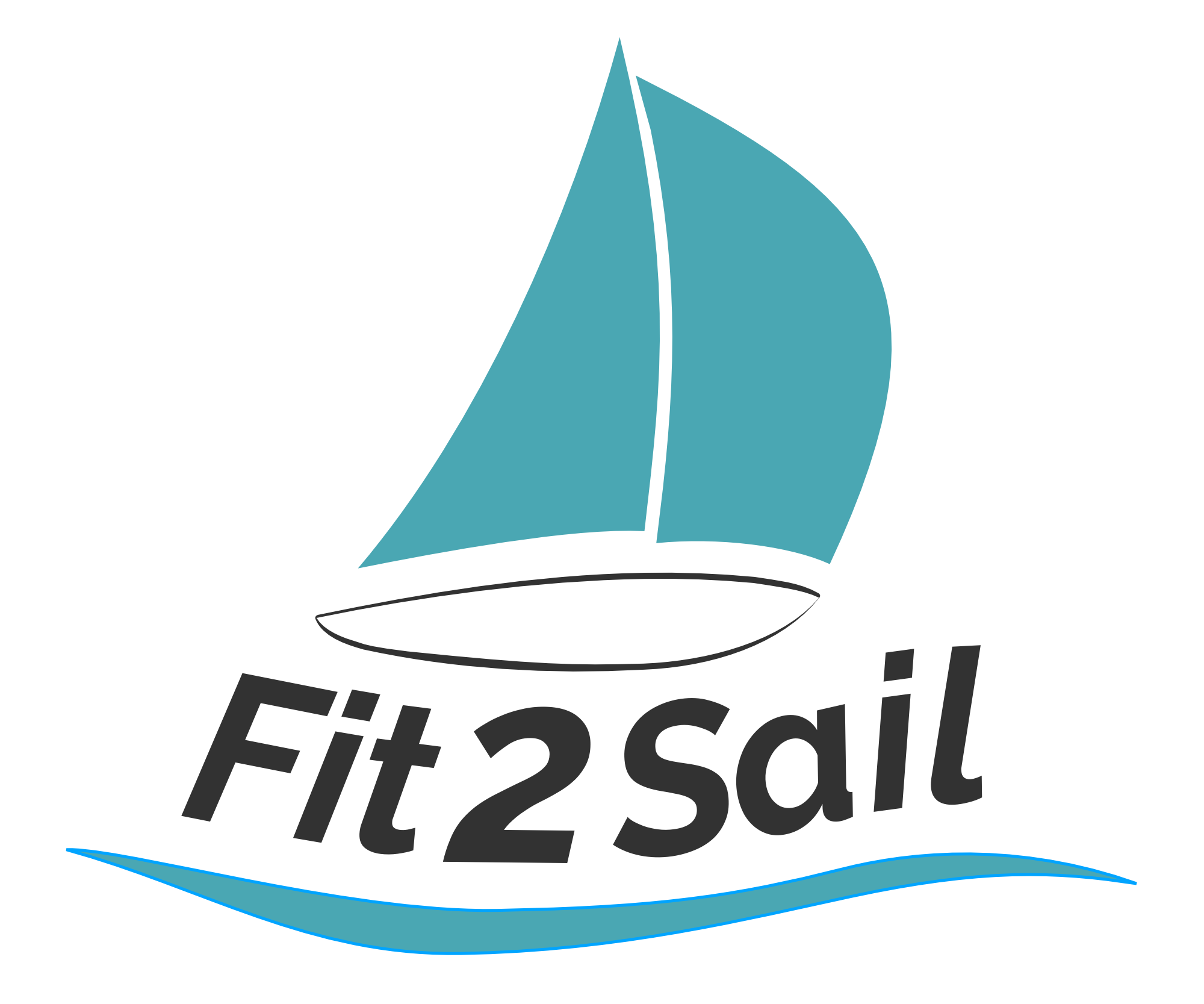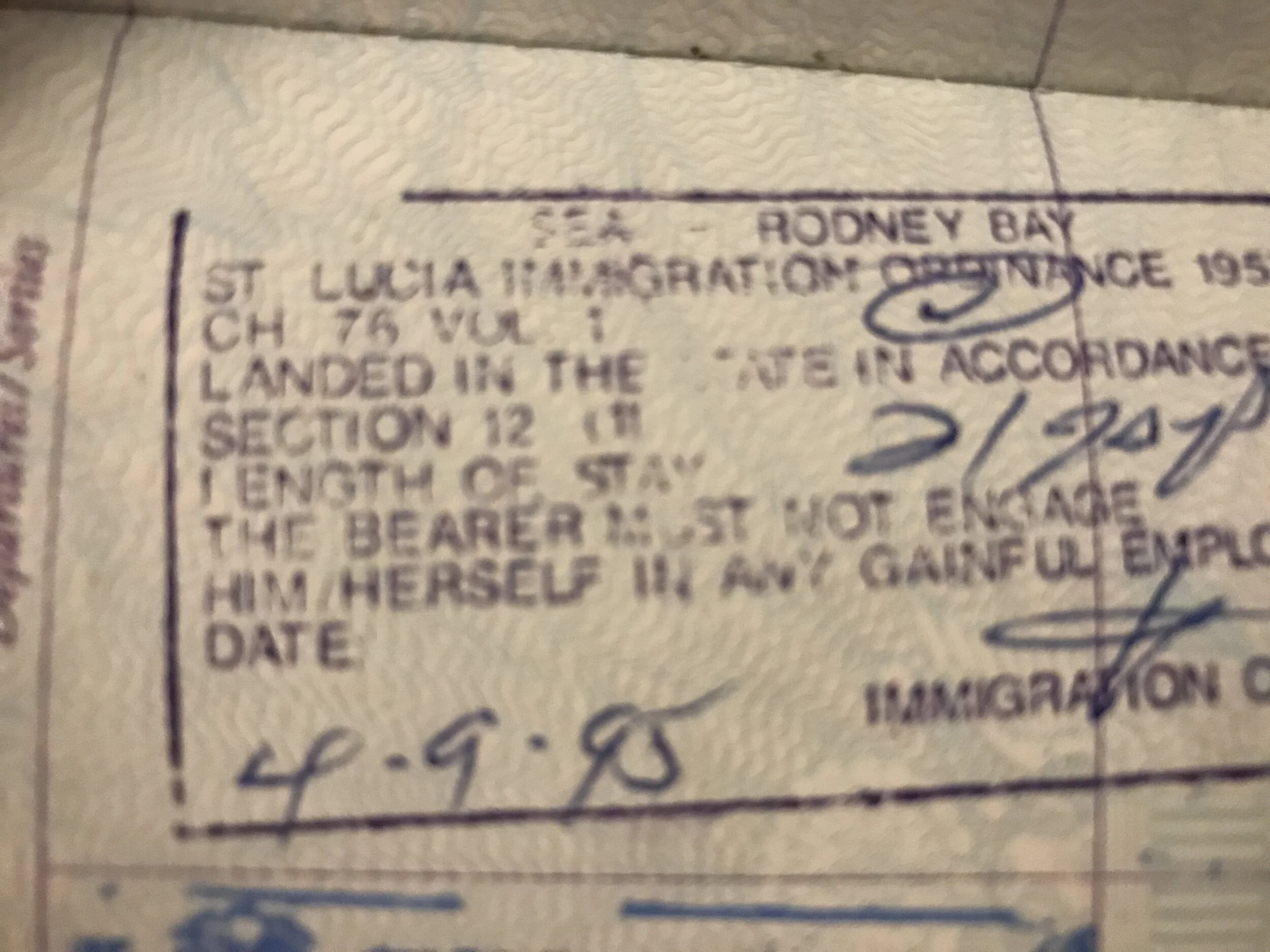Working While Cruising - Points to Consider About Paying for the Dream
We’re paying for our cruising dream from savings, I’ll just say that right up front. There’s a big reason we’re going on a small boat that’s been in our lives longer than we’ve been married, and it has something to do with finances. Yes, we both have side hustles, which we hope will continue to add to our cash cushion, but when we initially sat down to run numbers, those side hustles were not part of the equation; as the numbers have been updated, the side hustle income is still not considered.
We will have lean months and more spendy ones (that’s the nature of life in general), and we’ll make decisions on discretionary things like travel based on how we’re doing overall. This is a part of the plan we discuss over and over again. It’s taken us a lot of years and some disciplined decision-making to get to this point, for sure.
Lately I’ve seen a few posts from people exploring the dream. They want to know if they can take their business and just set up shop everywhere they go. They have portable, marketable skills that are in high demand. Maybe they’re a welder, or an incredible baker. Maybe they cut hair or are a dentist or a canvas maker or a diesel mechanic. Heck with waiting until you’ve saved up some unknown amount of money - why not go traveling and fund the lifestyle with the skills you already have?
Worker for hire? Not so fast.
Spoiler alert: it’s not that easy. Some things to consider.
1) Cruising in your own country. At least you have the basics in place: chances are, if you’re a citizen of a country you’re allowed to earn money and work (as a general concept) there. But. Do you need a permit or some paperwork from the government to do whatever your business is where you live already? If you do, you will similarly need a permit wherever you go. Being in the US can be challenging in this regard, as regulations vary from state to state and even county to county. Living on a boat doesn’t dissolve the requirement to heed business laws.
2) Cruising outside of your own country. There’s a difference between being in a county legally and legally being able to work in that country. Legal presence versus legal employment. Most of the time as a cruiser, you enter a new country and get a visa that allows you to stay in the country for a given length of time (legal presence). This visa (whether or not you had to procure it ahead of time) often specifically prohibits you from working. If you have complained about “illegal immigrants taking jobs” yet are planning to subvert local laws to feed your own family, I invite you to do some hard looking at your thinking.
3) Risks. Depending on local laws, either in your own country or one where you are a visitor, the penalties of working illegally range from fines to jail time to deportation and boat impoundment. If you choose to work “under the table”, understand what the penalties are and that you are willing to suffer them. It doesn’t much matter if “most” people get away with it: “most” people get away with speeding, too, and I’ve never heard anyone successfully use the “but everyone else does it” argument to get out of a ticket.
4) Karma. If you are like many cruisers, a large part of the appeal is exploring new places. You love the charming towns, the wild countryside, the quaint shops and out-of-the-way restaurants. Those places we all love so much are the way they are because of the people - and those people need to work to be able to live there and make those places so awesome. When you saunter into an anchorage and immediately start selling your stuff, whatever it is, you’re depriving someone who lives there of the chance to make money. This will not endear you (nor anyone who comes behind you) to the local population.
5) Bartering is okay, right? Not so fast. The cruiser community is fantastically generous, always ready to lend a hand. Someone calls for help on a rigging issue, and 6 dinghies magically appear tied to the transom, each carrying a helpful neighbor. This help is offered just as that, as help. There’s no expectation of compensation (though a cold beer is usually much appreciated) - we all know it might be us in need of help next time. So sure, if you’re a welder and have your stuff on hand, you might be able to help a fellow cruiser with some really specialized tools - but going out there with the idea that that might be the way to fund the whole adventure (besides the above realities to be aware of) isn’t really how the cruiser community operates.
So what can you do, other than work like mad for way too long and save it all up before hitting the high seas?
1) You might investigate places where you can legally ply your trade, and plan on cruising there and working for a while. Many countries are open about what skills they consider desirable (ie skills that could lead to a work visa). An online forum for your profession could give you openings and introductions that would help pave the way.
2) You might consider an on/off cruising schedule, where you cruise for a few months, then return to home base (where you have all your legalities sorted out, plus a clientele that’s been built up over time and is anxious for your return) to earn money to head off again.
3) You might build additional skills, ones that are in demand in the places you particularly want to cruise, and use that as your angle for a work visa.
4) You might, in the time between now and when you set off, build a side hustle that doesn’t depend on your physical presence. This could be buying real estate to rent out, or an Etsy store, or a series of books or magazine articles. It might be digital courses or solid investments. Maybe you’ve got an app idea or the world’s coolest t-shirt design. I highly recommend Tim Ferriss’s excellent (and simultaneously filled with some questionable tactics) book The 4-Hour Workweek - it was reading this book that got both Jeremy and me excited for and starting on our own ventures.
It’s really worth it all.
But what about YouTube??? There are indeed cruisers paying for their dream by putting content up on YouTube. There are also professional athletes and professional musicians making a killing on the court or the field or the stage. The odds are probably similar. For most cruisers, though, I’d imagine that the experience of Elena and Ryan (Sailing Kittiwake) is more the norm. Making videos is time consuming work: when you get good, it’s about an hour of editing time for every minute of finished content. This doesn’t include the filming time. It also takes a lot of time to build an audience. If you have your heart set on this way of funding your lifestyle, start early and plan on lots of other ways to make money; if you hit the lottery and do manage to fully pay for cruising by doing this, you can drop the other hustles.







